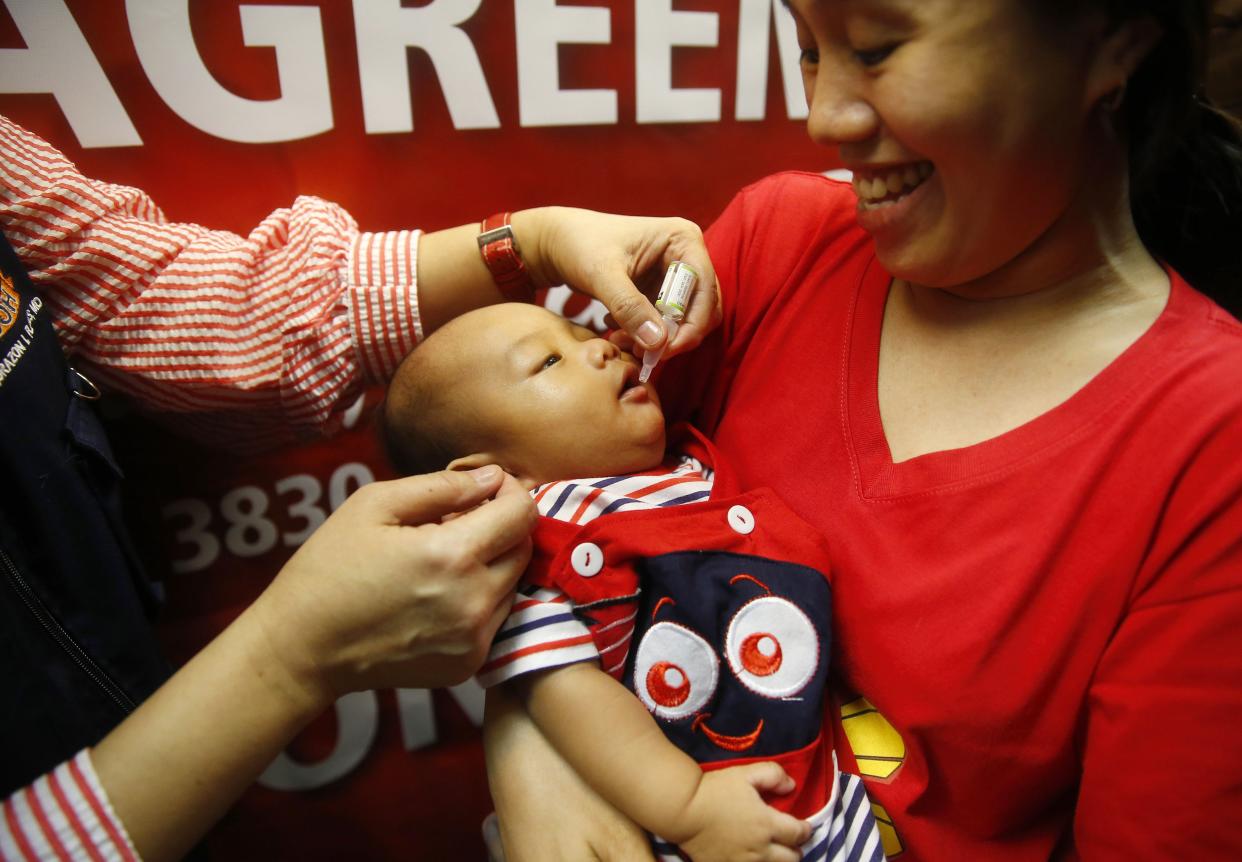Polio outbreak in Philippines has ended: WHO, UNICEF
The Philippines’ polio outbreak, which began in September 2019, has ended, according to United Nations agencies.
The Philippine Department of Health’s response to the outbreak ended last week after 16 months of zero cases detected, as was announced by The World Health Organization (WHO) and the United Nations Children’s Fund (UNICEF) in a joint statement Friday, The Associated Press reports.
Surveillance and a large scale immunization campaign preceded that achievement amid the coronavirus pandemic.

The outbreak’s beginnings followed nearly 20 years after the country had been declared free of polio by WHO.
A cure does not currently exist for polio, which can lead to paralysis and even death.
With the help of the U.N. agencies, the government’s anti-polio campaign saw no signs of stopping even during COVID-19 last year.
Roughly 30 million doses of the polio vaccine were administered to children as a result.
Despite that, health officials in the Southeast Asian nation have had difficulties gaining the public’s trust as far as inoculations go.
The hesitation stems from Sanofi Pasteur’s dengue fever vaccine which was linked by officials to at least three children’s deaths. That campaign began in 2016 and halted the following year.
With News Wire Services
